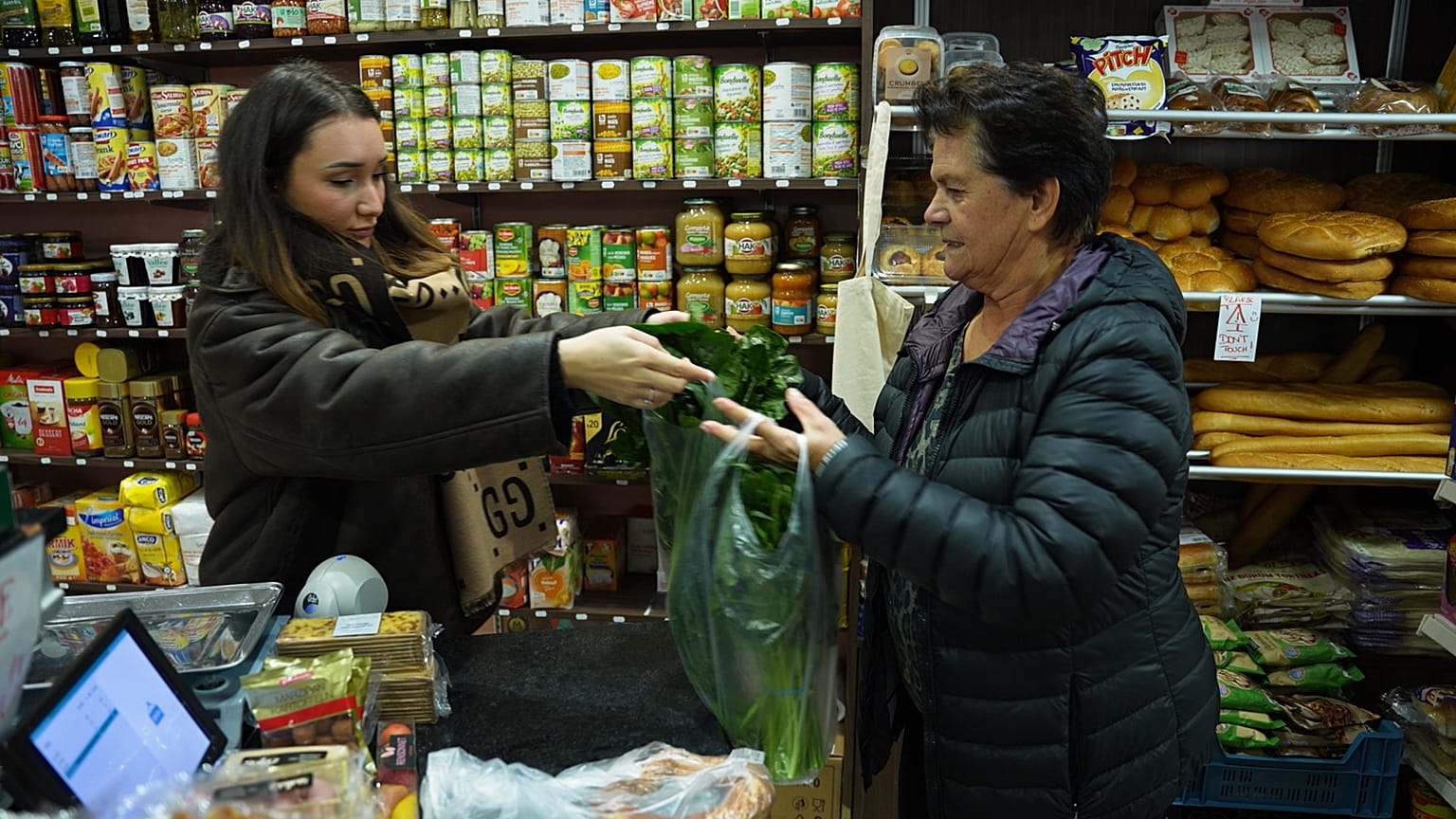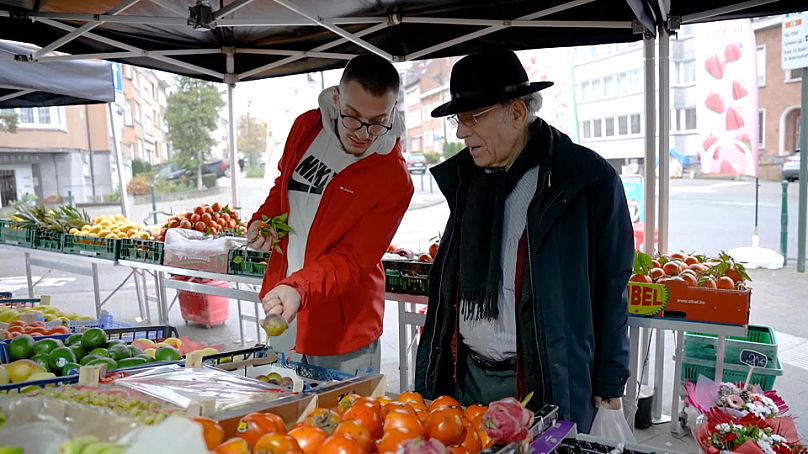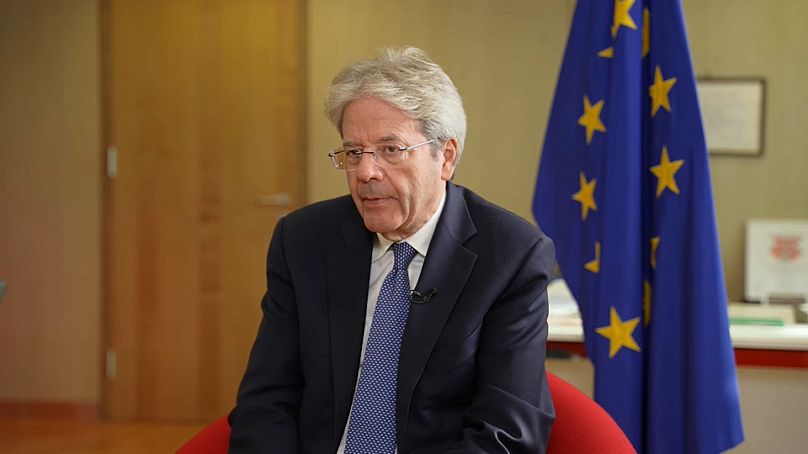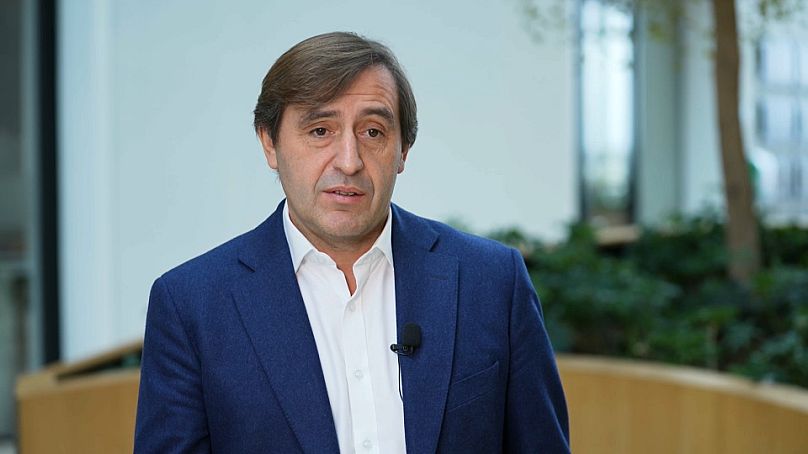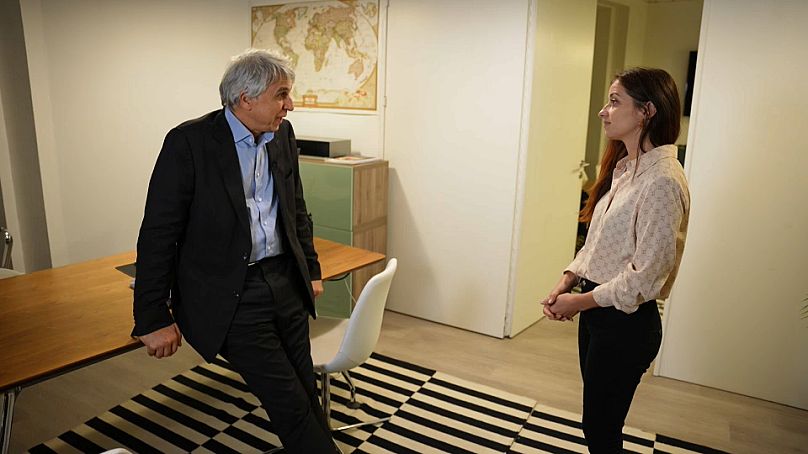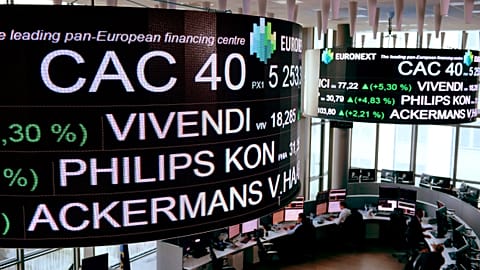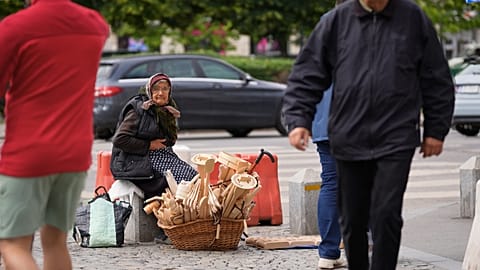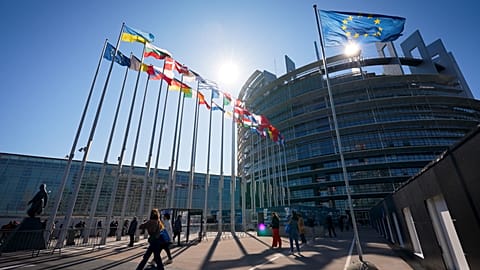After two years of high inflation, consumer price pressures finally look to be on a downward trend in Europe. But are businesses and consumers feeling the decrease in input costs and consumer prices? We head to Belgium to find out.
Europeans have been overwhelmed by the impact of inflation over the past 12 months. The European Commission's Autumn Forecast, published in November, indicates that although the clouds appear to be clearing and inflation has dropped below 3%, growth is looking stubbornly low.
In this episode of Real Economy, we ask if businesses and consumers are really seeing a drop in prices, and look ahead to how Europe's economic growth will evolve in the coming months.
Food prices rise despite fall in inflation
In Belgium, annual inflation is among the lowest in the eurozone. The price of energy, transportation, and certain raw materials has stabilised in recent months. However, many customers and businesses are not seeing a decrease in food prices.
"Whether it's in fruits and vegetables, especially in strong products like bananas, mushrooms, or tomatoes, there has been an increase of more or less 30%," explained Yacin Malkoc, the manager of a Belgian grocery store.
"In the past, fruits and vegetables were accessible to all budgets, but today, there is a significant decrease in clientele due to the increased prices."
In Europe, the price of food continued to increase in 2023. For instance, over two years, there has been a rise of 37% for eggs, 53% for potatoes, and 75% for olive oil.
However, in recent months, these prices have increased less rapidly. So as the anti-inflation measures of European countries come to an end, will companies and households feel the difference in their wallets?
"According to our estimates, the increase in wages will catch up with inflation. And of course, this will contribute to the purchasing power, this will increase consumption and the increase of consumption is the premise to restart growth. So there is a little bit of moderate optimism looking to 2024," European Commissioner Paolo Gentiloni told Real Economy.
In terms of inflation, Commissioner Paolo Gentiloni says energy prices will play a huge role.
"For the time being, it will continue with a lower speed to decline," he said. "I think there is a good possibility [that it will] restart growing, which is absolutely necessary for our economy."
Why are European businesses so concerned about energy?
The cost and supply of energy remain major concerns for large industrial companies. Etex, a multinational firm based in Belgium, needs a significant amount of energy to make its construction products.
The company's CEO, Bernard Delvaux, says inflation in energy costs has fuelled the hunt for more efficient alternatives.
"Everything related to reducing [energy] consumption is obviously essential," he said. "We have plans in our 160 factories to reduce intrinsic consumption, with investments in more efficient technologies."
In the eurozone, annual inflation has fallen sharply for energy, from 41.5% at the end of 2022 to -11.2% at the end of 2023.
However, Etex has seen its costs rise and demand for construction fall, due to the increase in interest rates.
"Energy costs two or three times more than two years ago, [which is] much more expensive than in the United States, much more expensive than in China, [and] much more expensive than in the Maghreb. So why not produce in these countries? And then salaries are obviously higher due to inflation. What we see is that production in Europe is becoming more and more expensive," Bernard Delvaux added.
So, if the cost of energy is decreasing, can we expect more competitive prices in the near future? Adel El Gammal, a professor of energy geopolitics, told Real Economy that this depends on a combination of many factors, "all of which are highly uncertain."
"We still source in Europe from pipelines and through liquefied natural gas from Russia. So, a total rupture could indeed put the markets under tension. And then, of course, the crisis in the Middle East. It's easy to imagine that an extension of the conflict - for example, a greater integration of Iran or Saudi Arabia - could obviously completely disrupt the situation," Adel El Gammal explained.
'It's a balancing act': The prospect of stagflation in Europe
In the meantime, Adel also points out that, according to the IMF, nearly half of the inflation in the last two years has been due to an increase in the profit margins of large companies - taking advantage of the price increase.
Even though inflation has decreased, the situation remains delicate.
"It's challenging, however, to return to an inflation target of 2%. It's a balancing act to try to maintain inflation at acceptable rates without entering a recession. We clearly see the quite serious spectre of possible stagflation here, which means low economic growth or economic decline with a high level of inflation. Unfortunately, it's a risk we will face in the coming quarters."
Back at the European Commission, we asked Paolo Gentiloni if the economic growth slowdown will continue next year.
"We had growth near zero at the end of the year. Next year, we estimate a mild rebound in growth, which is based on mostly the restart of private consumption, but also on a little bit of better condition for international trade. If this turns out to be true, we will be able to avoid the recession and have what we call a soft landing despite the tightening of monetary policy. This in itself would be great."
If Europe manages to mitigate the impact of the price crisis in the coming months, consumers will need to be patient and hope that current geopolitical conflicts are resolved sooner rather than later.














